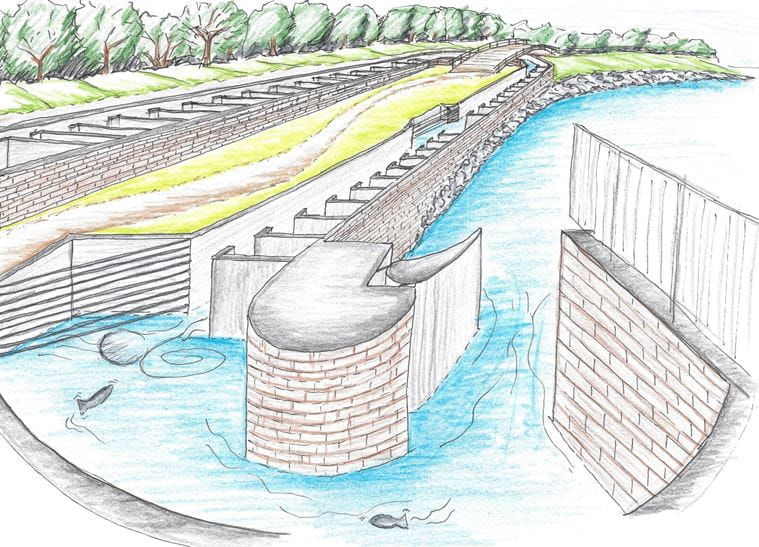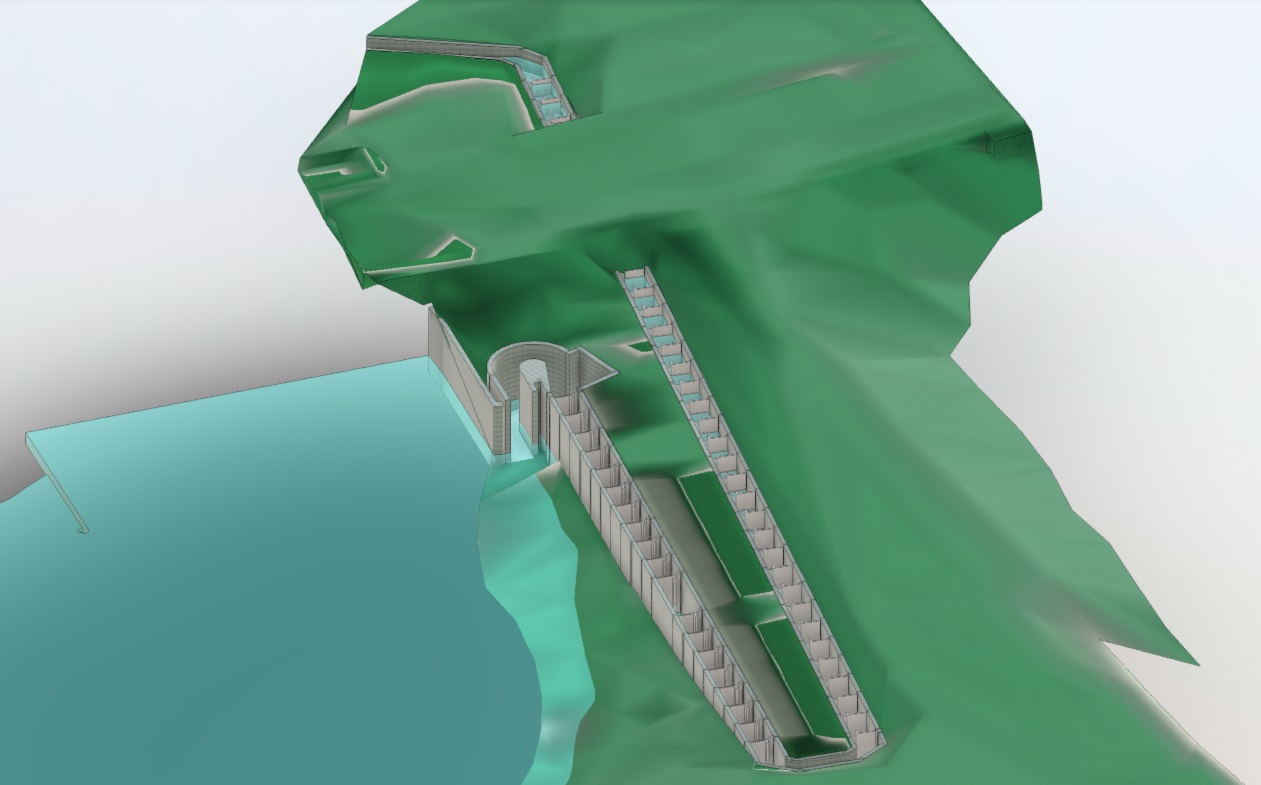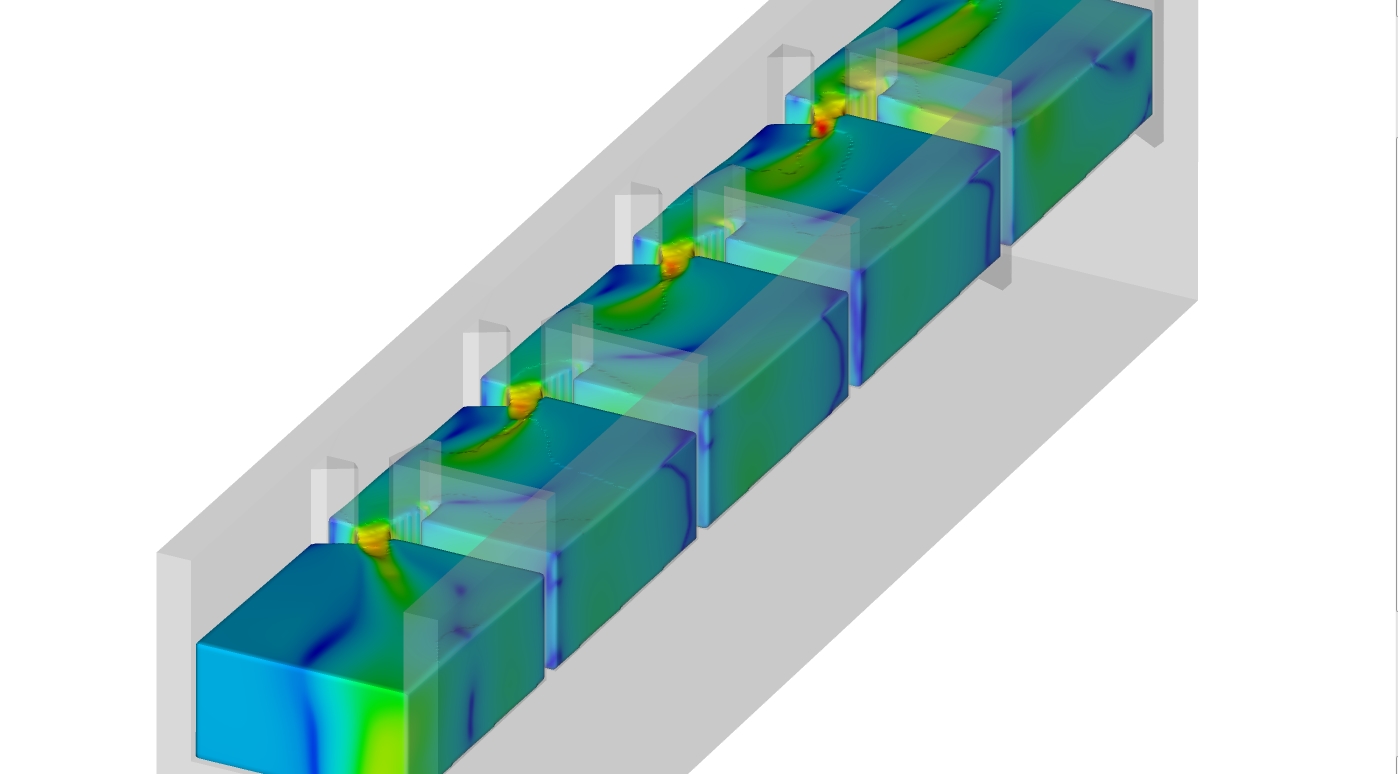A free ride for sea trout and eel: The highest fish pass in the Netherlands is being built in Doesburg

Running waters are by their very nature a networked habitat. But, over the years, as industrialisation increased, more and more rivers and streams were artificially straightened, dammed or their course otherwise altered- often with significant consequences for flora and fauna. Many fish and other aquatic organisms depend on continuous flowing waters to allow free migration and movement and when this is restricted by weirs, hydroelectric power plants or other structures, there is an associated negative impact on the biodiversity and ecological status of the river.
For this reason, the European Union has, among other things, obligated the member states to restore all ecologically impaired watercourses as far as possible and to make them passable. Unless migration obstacles can be dismantled, national water laws require other measures to allow safe passage for the river dwellers.
It is in this context that CDM Smith is currently planning the highest fish pass in the Netherlands on the Ijssel, the northernmost branch of the Rhine into the North Sea. The work will provide a corridor for migratory fish such as sea trout and eel and is currently being built from the North Sea to the German Issel and Bocholter Aa (Münsterland).
Specifically, the project addresses the 5 m high barrage in Doesburg about 15 km east of Arnhem. Here, the barrage on the IJssel controls water flow to allow shipping traffic access to the German-Dutch border. However, the structures across the river, including the weir and the ship's lock, prevent fish migration from the IJssel to the approximately 1,200 km² large river basin.
On behalf of the responsible water board, CDM Smith designed a slot pass and is currently working on the three-dimensional design and execution plans. The use of 3D flow simulations ensures that the design is hydraulically optimised. A particular challenge of the project is the ambitious timeframe, with the fish pass due for completion by the end of the year. Construction is due to start in March 2018 with CDM Smith accompanying the works every step of the way.
Modeling of the fish pass
CDM Smith provides lasting and integrated solutions in water, environment, transportation, energy and facilities to public and private clients worldwide. As a full-service engineering and construction firm, we deliver exceptional client service, quality results and enduring value across the entire project life cycle.

We optimize the fish path with 3D flow simulations both hydraulically and in its design.


